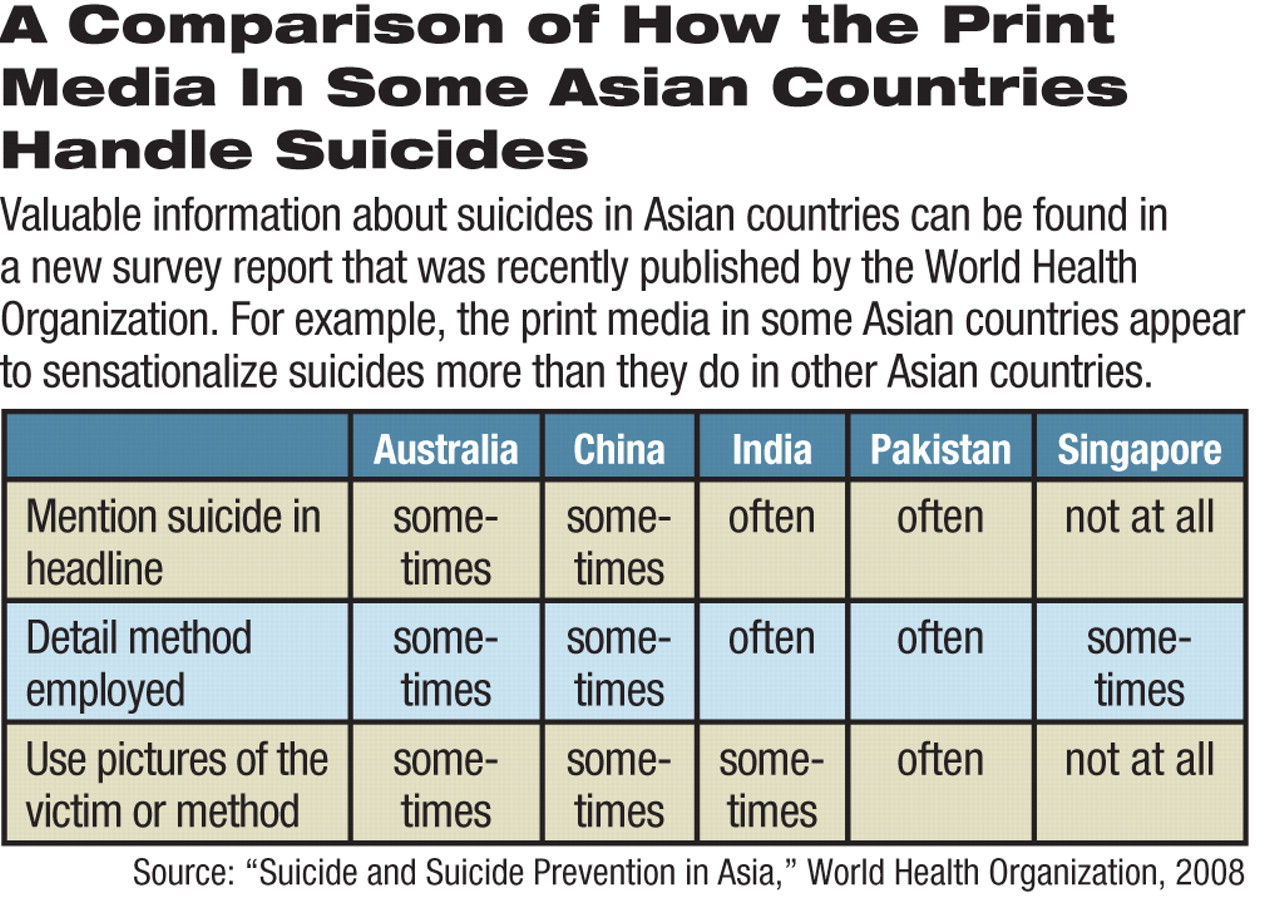Two years ago, a new private, nonprofit organization called Suicide Prevention International (SPI) was launched to bring suicide experts from around the world together to better understand suicides in various countries, explore what might work to prevent them, and fund promising suicide prevention projects (Psychiatric News, December 15, 2006).
One of SPI's latest initiatives has been to conduct a survey on suicide in Asian countries for the World Health Organization (WHO). The survey results have now been published by WHO, and they contain several important and surprising findings, Herbert Hendin, M.D., CEO and medical director of SPI, told Psychiatric News.
First there is “the incredible shortage of qualified doctors as well as other health care personnel—nurses, psychologists, social workers—in the rural areas of China,” Hendin said. A second problem is “the inability of many of the [Asian] countries to ascertain and record deaths due to suicide.” And a third issue is that “the cultural, social, and religious stigma attached to suicide extends to the families of the deceased. In Pakistan and India [in fact], suicide is still illegal. This [evidence of stigma] results in the concealment of suicide, the reluctance of patients who attempt suicide to seek treatment, and the unwillingness of their families to encourage them to do so.”
Some other thought-provoking results have also emerged from the survey, such as the following:
•
In Australia and New Zealand, the male to female ratio of suicides is about 4:1, which is typical of most European countries and the United States. In most Asian countries, however, the ratio is much lower, and in China more women than men commit suicide, largely because of the number of women in rural China who take their own lives. Three contributing factors appear to be financial problems, unhappy marriages, and spousal abuse.
•
Similarly, in India, Pakistan, and Sri Lanka, where arranged marriages are common, social and familial pressure on women to stay married even in abusive relationships seems to be one of the factors that prompt women to commit suicide.
•
Pressure to do well on school exams and the shame associated with failure seem to contribute to suicide among young people in China, India, Japan, Malaysia, and Sri Lanka.
Since it was founded two years ago, SPI has also implemented several major suicide-prevention projects in rural China. For example, as Hendin explained,“ China, with 21 percent of the world's population, has between 30 and 40 percent of the world's suicides. Three quarters of the suicides [in China] are in rural China.... [Unfortunately] it will be decades until China has enough general practitioners or psychiatrists to serve the villages and towns of rural China. [So] ... we are training [rural] clinic health workers to recognize mental illness and suicide risk and to refer patients to county psychiatric hospitals for diagnosis and treatment.... The project is being implemented in a province of several million.”
“If this succeeds, which we think it will, it's going to be potentially a model for all of China,” Hendin asserted. “The Chinese government is involved in it. [Officials] have gone to the site, and they want to be kept informed of its progress.”
SPI is funded by individual donors, private foundations, and various American, Asian, and European corporations. For instance, SPI's development committee is headed by a telecommunications industry executive who lost her daughter to suicide. She has gotten the telecommunication corporations Viacom, BBC, and Turner Broadcasting Company to contribute funds to SPI.
Results from SPI's latest survey, “Suicide and Suicide Prevention in Asia,” are posted at www.spiorg.org/pdf_WHO/suicide_prevention_asia.pdf.

